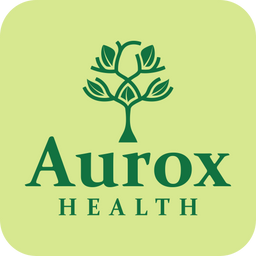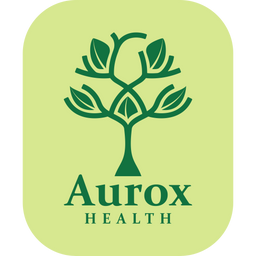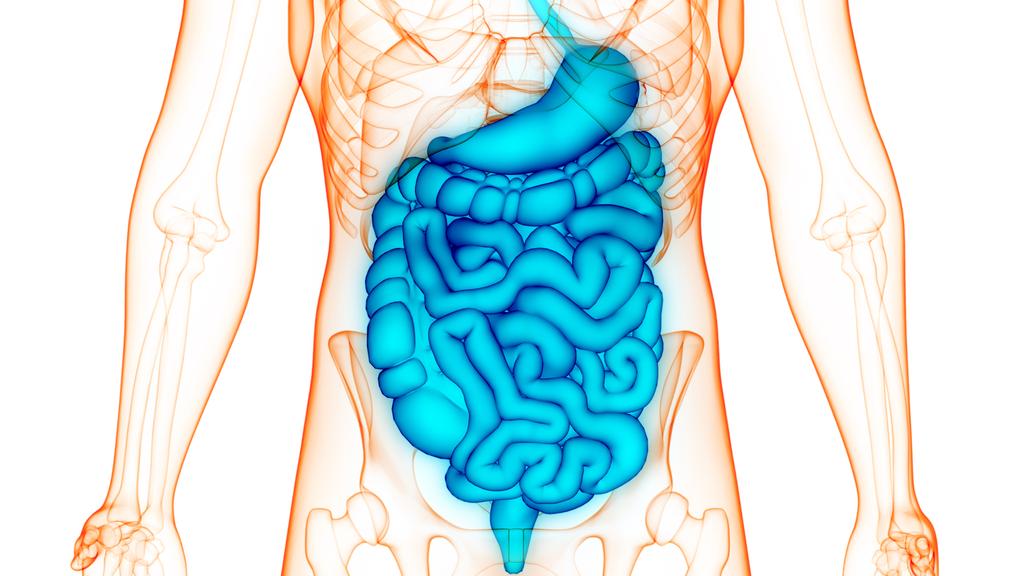Introduction to Enzyme Deficiencies and Digestive Health 🌱🔍
Digestive enzymes are essential catalysts in the breakdown of food, enabling the absorption of nutrients vital for our overall health and well-being. These biological molecules facilitate the conversion of complex nutrients into simpler forms that the body can readily utilize. However, when enzyme levels are insufficient or impaired, it can lead to digestive difficulties and compromise our digestive health.
Enzyme deficiencies occur when the body doesn't produce an adequate amount of certain enzymes necessary for proper digestion. This deficiency can arise from various factors, including genetics, aging, poor diet, stress, and certain health conditions. As a result, the body may struggle to effectively break down carbohydrates, proteins, fats, and other nutrients, leading to symptoms such as bloating, gas, indigestion, and nutrient malabsorption.
In this section, we'll delve into the intricacies of enzyme deficiencies, exploring their potential causes, symptoms, and implications for digestive health. Understanding the impact of enzyme deficiencies is crucial for identifying appropriate interventions and optimizing digestive function. Let's embark on a journey to unravel the complexities of enzyme deficiencies and their profound influence on digestive well-being.
From the article you will learn:
- Understanding Antioxidants
- The Link Between Antioxidants and Eye Health
- Foods Rich in Eye-Healthy Antioxidants
- Key Antioxidants for Vision Protection
- Lifestyle Tips for Maximizing Antioxidant Benefits
Understanding Enzyme Deficiencies 🌿🔬
What are Enzymes? Enzymes are specialized proteins produced by the body to facilitate chemical reactions. Enzymes serve as vital agents in digestion, efficiently converting complex food molecules into smaller, digestible nutrients essential for energy, growth, and cellular repair. Each type of enzyme is tailored to target specific nutrients, such as carbohydrates, proteins, and fats, ensuring efficient digestion and nutrient absorption.
The Role of Enzymes in Digestion: During digestion, enzymes act as catalysts, speeding up the conversion of large macromolecules into smaller molecules. For example:
-
Amylase: Breaks down carbohydrates such as starches and sugars into simpler sugars like glucose.
-
Protease: Breaks down proteins into amino acids, the building blocks of proteins.
-
Lipase: Breaks down fats into fatty acids and glycerol for absorption.
Enzyme Deficiencies and Digestive Problems: When the body doesn't produce enough enzymes or if enzyme activity is impaired, it can lead to digestive problems. Enzyme deficiencies can result from factors such as genetics, aging, certain medical conditions, and lifestyle factors. Without sufficient enzymes, the digestive process may be incomplete, leading to symptoms such as:
-
Bloating
-
Gas
-
Indigestion
-
Diarrhea
-
Malabsorption of nutrients
These symptoms can significantly impact digestive comfort and overall well-being. Recognizing the signs of enzyme deficiencies is essential for addressing digestive issues effectively and restoring optimal digestive function.
Common Causes of Enzyme Deficiencies 📉🔍
Factors Contributing to Enzyme Deficiencies:
-
Age: As we age, our bodies may produce fewer enzymes, leading to decreased digestive efficiency. Aging can affect enzyme production and secretion in the digestive organs, contributing to enzyme deficiencies and digestive issues.
-
Genetics: Genetic factors can influence enzyme production and function. Some individuals may inherit genetic variations that affect their ability to produce certain enzymes efficiently, increasing the risk of enzyme deficiencies.
-
Health Conditions: Certain health conditions, such as pancreatic disorders, gastrointestinal disorders, and liver diseases, can impair enzyme production or secretion, leading to enzyme deficiencies and digestive problems.
Impact of Poor Diet, Stress, and Lifestyle Factors:
-
Poor Diet: A diet lacking in fresh fruits, vegetables, and whole grains may provide insufficient nutrients needed for optimal enzyme production. Processed and high-fat foods can also strain the digestive system, leading to enzyme depletion and decreased digestive efficiency.
-
Stress: Chronic stress can disrupt digestive function by altering hormone levels and reducing blood flow to the digestive organs. Stress can impair enzyme production and secretion, leading to enzyme deficiencies and digestive discomfort.
-
Lifestyle Factors: Lifestyle habits such as smoking, excessive alcohol consumption, and sedentary behavior can negatively impact digestive health. These habits may interfere with enzyme production and function, exacerbating enzyme deficiencies and digestive problems.
Understanding the various factors that contribute to enzyme deficiencies is crucial for addressing digestive issues effectively. By identifying and addressing underlying causes, individuals can take proactive steps to support digestive health and optimize enzyme function.
Symptoms of Enzyme Deficiencies 🚨📋
Common Symptoms Associated with Enzyme Deficiencies:
-
Abdominal Discomfort: Individuals with enzyme deficiencies may experience abdominal discomfort, including bloating, cramping, and abdominal pain, particularly after meals. These symptoms occur due to incomplete digestion of food and subsequent fermentation in the gut.
-
Diarrhea: Enzyme deficiencies can lead to malabsorption of nutrients, resulting in loose or watery stools and frequent bowel movements. Diarrhea may occur due to undigested food passing quickly through the digestive tract, leading to irritation and inflammation.
-
Nutrient Malabsorption: Inadequate enzyme activity can impair the absorption of essential nutrients, including carbohydrates, proteins, fats, vitamins, and minerals. This can result in nutrient deficiencies and related symptoms such as fatigue, weakness, and impaired immune function.
Recognizing the symptoms of enzyme deficiencies is essential for addressing underlying digestive issues and restoring optimal digestive function. Seeking medical evaluation and appropriate treatment can help alleviate symptoms, improve nutrient absorption, and enhance overall digestive health and quality of life.
Impact on Overall Digestive Health and Quality of Life:
When you don't have enough digestive enzymes, it can really make your stomach uncomfortable and affect how good you feel overall. This can lead to constant stomach problems and discomfort. People might start eating less, have trouble with certain foods, and feel like their quality of life isn't as good.
If this goes on for a long time, it can make it hard for your body to get the nutrients it needs from food. Prolonged nutrient deficiency may trigger numerous health issues, including stunted growth, increased susceptibility to infections, and a greater risk of chronic diseases.
Also, having stomach issues because you don't have enough enzymes can make you feel really bad emotionally and make it hard to hang out with others. You might feel anxious, sad, and prefer to stay by yourself. Insufficient enzyme levels leading to stomach issues can deeply affect your emotional state, often resulting in feelings of anxiety and despondency. Consequently, you may isolate yourself, struggling with daily tasks, underperforming at work, and withdrawing from social interactions with friends and family, diminishing the quality of your life.
Supplements for Enzyme Support 🌿💊
Digestive enzyme supplements are designed to support digestive health by providing additional enzymes that may be lacking due to enzyme deficiencies or impaired enzyme function. These supplements can help fill the gaps in enzyme production and activity, supporting optimal digestion and nutrient absorption:

-
Amylase: Breaks down carbohydrates into simpler sugars such as glucose. Supplementing with amylase can aid in the digestion of starches and carbohydrates, reducing the risk of bloating and gas associated with incomplete carbohydrate digestion.
-
Protease: Protease is responsible for breaking down proteins into amino acids, which are essential for various physiological processes. Protease supplements can support protein digestion, helping to alleviate symptoms such as indigestion and discomfort after protein-rich meals.
-
Lipase: Lipase is an enzyme that assists in the breakdown of dietary fats into fatty acids and glycerol, facilitating fat absorption. Lipase supplements can be beneficial for individuals with impaired fat digestion, helping to prevent symptoms such as diarrhea and fatty stools.
-
Lactase: Lactase is needed to digest lactose, the sugar found in milk and dairy products. Lactase supplements can help individuals with lactose intolerance digest dairy products more effectively, reducing symptoms such as bloating, gas, and diarrhea.
By supplementing with digestive enzyme supplements containing key enzymes such as amylase, protease, lipase, and lactase, individuals can support digestive health and alleviate symptoms associated with enzyme deficiencies. It's essential to choose high-quality supplements from reputable manufacturers and follow dosage recommendations for optimal results.
Other Types of Digestive Enzyme Supplements:
Aside from standard enzyme supplements that supply enzymes directly, various other supplements and natural remedies exist to bolster the body’s enzyme production or overall digestive health. These alternatives can lead to a more comprehensive strategy for better digestion and nutrient uptake. Incorporating these can offer a more holistic approach to improving digestion and nutrient absorption.
-
Prebiotics and Probiotics: Prebiotics are types of dietary fiber that feed the beneficial bacteria in your gut. By supporting a healthy microbiome, they indirectly promote the production of natural enzymes in the gut that are essential for digestion. Probiotics are live beneficial bacteria that can add to the population of healthy microbes in your gut. Some strains of probiotics may help improve the balance of gut flora, which can enhance the body's ability to produce digestive enzymes and break down food.
-
Herbal Supplements: Certain herbs have been traditionally used to support digestion and may help stimulate the body's own production of digestive enzymes:
Ginger: Known to help stimulate saliva, bile, and gastric enzymes, which can aid in the digestion of food.
Dandelion: Rich in compounds that are believed to stimulate digestion by supporting the liver and pancreas.
Peppermint: Often used to soothe digestive issues; it may also have effects on bile production, which is crucial for fat digestion.
-
Zinc: A mineral crucial for many enzymatic processes in the body, including those involved in digestion. A zinc supplement may support the body's production of digestive enzymes, particularly for individuals with a deficiency.
-
Betaine HCl: Used as a supplemental source of hydrochloric acid in the stomach. Individuals consume Betaine HCl to bolster digestive wellness, aiming especially to improve protein digestion and nutrient uptake, based on the belief that insufficient stomach acid impedes the digestive process.
-
Pancreatic Enzymes: Pancreatic enzyme supplements contain enzymes extracted from animal pancreases (usually pigs) closely resemble our own digestive enzymes. Doctors frequently recommend them to patients with pancreatic disorders like pancreatitis or cystic fibrosis, improving their ability to process food.
-
Fiber Supplements: While not directly enzymes, these supplements support digestive health by improving gut motility and the consistency of stool, which aids in the overall digestion and elimination process.
-
Omega-3 Fatty Acids: Have anti-inflammatory properties that may benefit digestive health by reducing inflammation in the gastrointestinal tract, potentially supporting the health and function of the digestive system.
-
Aloe Vera: Aloe vera is known for its soothing and anti-inflammatory properties. It may help support the health of the digestive tract lining, although its direct effect on enzyme production is less clear.
When considering these supplements, it's important to remember that balance and suitability to your specific health needs are key. Some supplements, like Betaine HCl and pancreatic enzymes, should be taken under the guidance of a healthcare provider. As with any supplement, the goal is to support your body's natural processes, not to overload it or cause imbalances.
Incorporating Digestive Enzyme Supplements into Your Routine 🌿🍽️
Practical Tips for Incorporating Digestive Enzyme Supplements:
-
Take with Meals: Incorporate digestive enzyme supplements into your daily routine by taking them with meals, particularly those high in carbohydrates, proteins, or fats. This allows the enzymes to work alongside your natural digestive processes.
-
Follow Dosage Recommendations: Adhere to the recommended dosage provided on the supplement label or as advised by a healthcare professional. Avoid exceeding the recommended dosage unless directed otherwise.
-
Experiment with Timing: Try taking the supplement at various times—before, during, or after meals—to see what best suits your digestion and offers the most relief.
-
Pair with Problematic Foods: Take digestive enzyme supplements with meals containing foods that typically trigger digestive discomfort or symptoms. This can help enhance digestion and alleviate discomfort associated with certain foods.
Advice on Monitoring and Adjusting Supplement Usage:
-
Listen to Your Body: Pay attention to how your body responds to digestive enzyme supplements and monitor any changes in digestive symptoms or overall well-being. Adjust the dosage or timing of supplementation as needed based on your individual needs and responses.
-
Consult with a Healthcare Professional: Seek guidance from a healthcare professional to assess your digestive health goals and determine the most suitable supplement regimen for your needs. They can provide personalized recommendations based on your unique health profile.
-
Track Progress: Keep a journal or diary to track your progress with digestive enzyme supplementation, noting any improvements in digestive symptoms, nutrient absorption, or overall well-being. This can help you evaluate the effectiveness of the supplement and make informed adjustments over time.
Conclusion and Call to Action 📝🌟
Incorporating digestive enzyme supplements into your daily routine can be a valuable tool for supporting optimal digestion and alleviating symptoms of digestive discomfort. By following practical tips for supplementation and monitoring your progress closely, you can tailor your supplement regimen to meet your individual digestive health goals.
If you're experiencing persistent digestive issues or have concerns about your digestive health, consult with a healthcare professional for personalized guidance and recommendations. Together, you can develop a comprehensive plan to optimize your digestive health and enhance your overall well-being.






